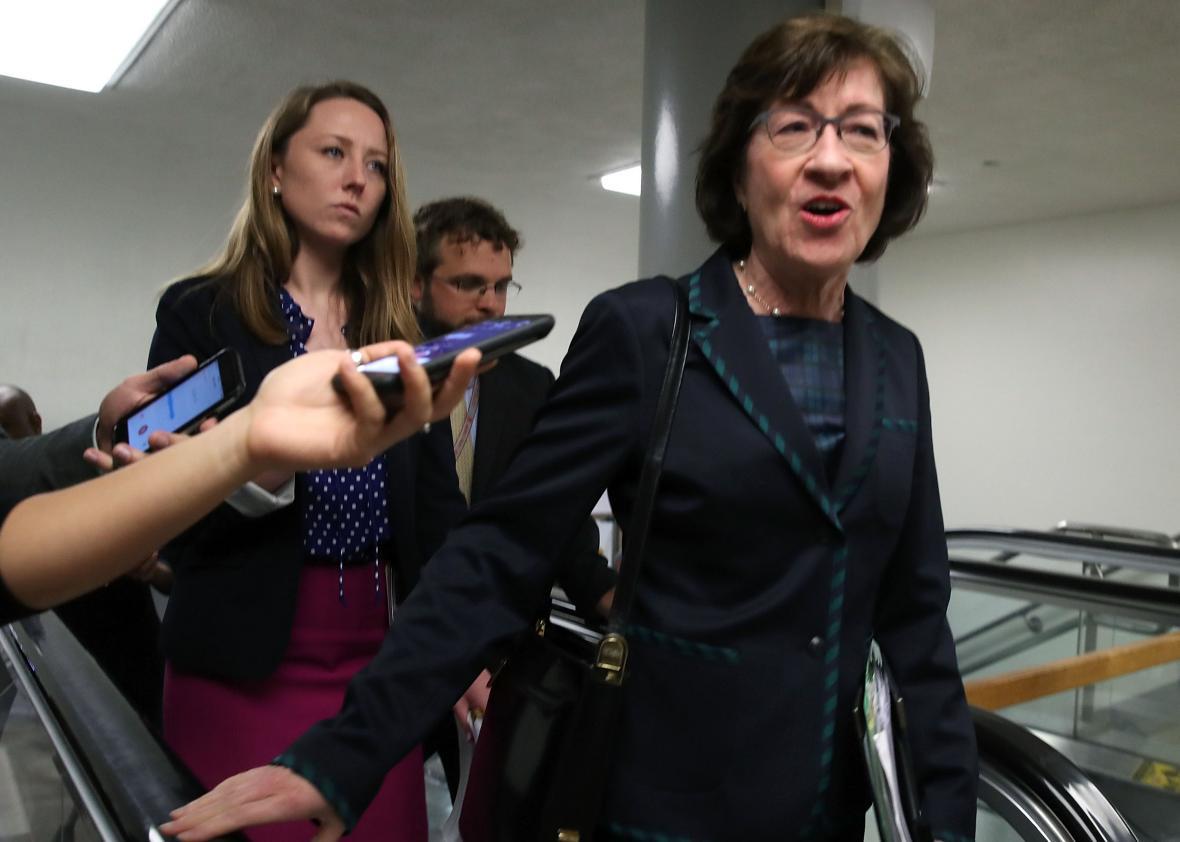The Better Care Reconciliation Act is theoretically one or two days away from its first, crucial procedural vote. Senate Majority Leader Mitch McConnell needs 50 votes to proceed. So who, especially after the Congressional Budget Office’s latest grim analysis of a Republican attempt to reform the health care system, is going to vote for this thing?
The rank and file—which in this case means senators who don’t really care about or understand health care—will do what is expected of them, though not because they’re particularly thrilled about the impending health care utopia they’ve been promised. I asked Alabama Sen. Richard Shelby, for example, what he made of the CBO report.
“Well, it’s interesting,” he said. “Saving a lot of money!”
Good old Dick Shelby will vote for it. So will Oklahoma Sen. Jim Inhofe, who told a reporter that he’s “not sure what [the bill] does,” but that he knows it’s “better than Obamacare.” Arizona Sen. John McCain would like to see “a lot” changed but isn’t withholding his support because, he said, “that’s not how it works.” (Oh?) South Carolina Sen. Lindsey Graham, similarly, will be there when he’s needed, but he couldn’t help but notice the damage that the CBO’s projection of 22 million fewer insured—along with the immediate premium increases, and higher out-of-pocket costs—does to the bill’s prospects.
“The bottom line,” he said, “is you’re probably not going to get 49 [votes]. You’re probably going to get 50 or probably 35.”
So then what is going to be done in the next 24 or 48 hours to get those 50 votes that are needed to open debate on the bill?
Nevada Sen. Dean Heller said that he would vote no on the motion to proceed to debate in a press conference Friday and that it would be “very difficult” to get him to yes. Rand Paul, who seems completely gone, told reporters Monday night that he would “absolutely” vote no on the motion to proceed unless the bill is remade to his liking, an overhaul that would probably earn one total vote in the Senate. Wisconsin Sen. Ron Johnson reiterated Monday that he probably wouldn’t vote for it, either, barring some major changes. He’s considered one of the more easily “gettable” holdouts, along with Texas Sen. Ted Cruz, who deflected several questions Monday about how he would vote on a motion to proceed.
Maine Sen. Susan Collins told reporters as she was entering the Capitol that she would have a statement out soon with her reaction to the CBO score but that the score is “obviously not positive.” She later tweeted out a statement: She would vote no on the motion to proceed, because the CBO score confirmed that BCRA is hot garbage.
There are now more than enough votes to block the motion to proceed, split about evenly with complaints from the moderate and conservative perspectives. The bill is stalled—and we haven’t even heard from other votes like Ohio Sen. Rob Portman, West Virginia Sen. Shelley Moore Capito, Colorado Sen. Cory Gardner, Alaska Sen. Lisa Murkowski, and others who have expressed discomfort with the prospect of voting for hot garbage. The Wednesday vote on the motion to proceed, to put it generously, looks ambitious.
This comes down to what health care really means to Mitch McConnell. If he is determined to pass a health care bill, he could call off the vote and work through July toward reaching consensus. If he’s ready to move on, he could call off the motion to proceed, end the effort, and blame Democrats indefinitely for everything that’s wrong with American health care.
Or this could all be posturing, and hot garbage will get 50 Senate votes on Thursday.
